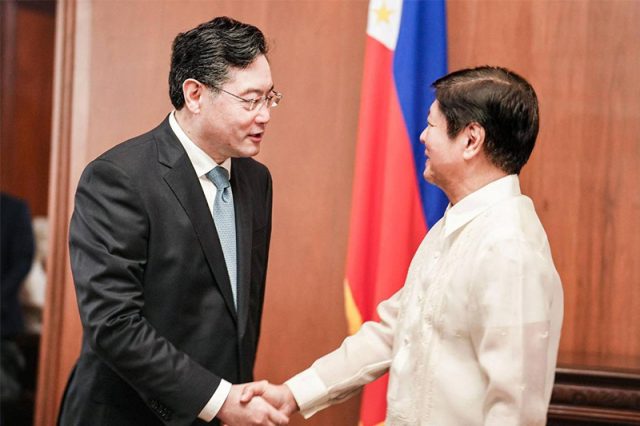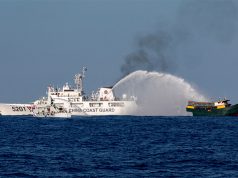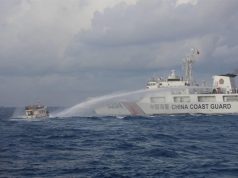
- Philippines in series of meetings with U.S., China
- Ties are more than South China Sea dispute, Manila says
- Manila reaffirms adherence to One China Policy
MANILA— Philippines President Ferdinand Marcos Jr and his foreign secretary met Chinese Foreign Minister Qin Gang on Saturday with Manila and Beijing pledging to work together to resolve their maritime differences in the South China Sea.
READ: China’s foreign minister to visit Philippines this week
Talks between the countries’ key officials in Manila mark the latest in a series of high-level meetings of the Philippines with leaders of the United States and China as the two superpowers battle for strategic advantage in the Indo-Pacific.
“As to the conflicts, we agreed to establish more lines of communications so that any event that occurs in the West Philippine Sea that involves China and the Philippines can immediately be resolved,” Marcos said in a statement. Manila refers to the part of the South China Sea that it claims as the West Philippine Sea.
Marcos said Qin’s visit was helpful in talking things through and continuing work on growing the relationship between the two neighbors.
Qin and his counterpart, Philippines’ Foreign Secretary Enrique Manalo, discussed views on strategic and regional issues during bilateral talks that started earlier on Saturday.
At the start of the talks, Qin said the two countries needed to work together to continue a tradition of friendship, deepen cooperation and properly resolve differences. Working together would help promote peace and stability of the region and the world, he added.
Manalo reaffirmed the Philippines’ adherence to the One China Policy, while at the same time expressing concern over the escalating tensions across the Taiwan Strait.
China’s ambassador to the Philippines last week caused a stir when he accused the Southeast Asian nation of “stoking the fire” of regional tensions by offering expanded military base access to the United States, which he accused of interfering.
The Philippines this month announced the location of four additional U.S. military bases, three of which are facing north towards Taiwan, which China claims as its own.
Manila’s foreign minister said relations with Beijing are more than just their differences over the South China Sea, which sees the passage of about $3 trillion worth of ship-borne goods annually and is believed to be rich in minerals and oil-and-gas deposits.
“These differences should not prevent us from seeking ways of managing them effectively, especially with respect to enjoyment of rights of Filipinos, especially fishermen,” Manalo said, adding that their livelihoods are undermined by incidents and actions in the waterway.
Since Marcos took office in June, the Philippines has filed dozens of diplomatic protests at the presence of Chinese fishing vessels and what it calls China’s “aggressive actions” in the strategic waterway.
Marcos is set to meet U.S. President Joe Biden in Washington in May, days after more than 17,000 Philippine and U.S. soldiers complete their largest ever joint military drills in the Southeast Asian country, drawing criticism from Beijing.
RELATED: Biden to meet Marcos at White House on May 1
—Reporting by Neil Jerome Morales; Editing by Kanupriya Kapoor, William Mallard and Clelia Oziel









